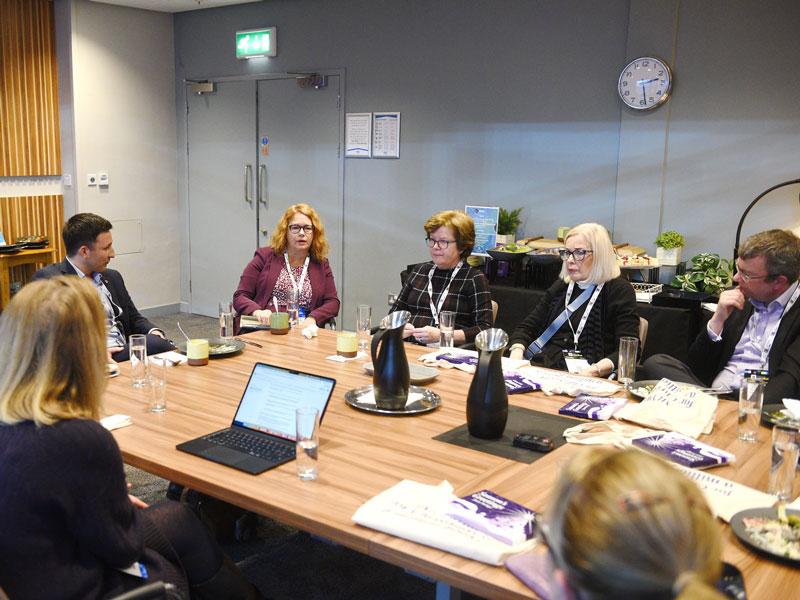As learners today seek personalised and flexible education across different formats, utilising modern tools such as AI and data analytics can support universities in becoming more efficient and adaptable while equipping students with essential digital skills. A round-table discussion, held in partnership with Perlego as part of the 2024 THE Campus Live UK&IE event, featured senior leaders from the higher education sector who explored strategies for institutions to embrace the opportunities presented by modern technologies.
The round-table participants discussed the need for institutions to adopt agile methodologies and modern technologies, such as AI, to enhance efficiency and adaptability amid financial constraints. The discussion also focused on the challenges of meeting evolving student expectations in the digital era.
There’s a need for institutions to be agile, flexible and adapt to the developing needs of students and technological advancements, said Katharine Templeton, head of UK partnerships at Perlego. “That’s something AI can come in to support, enable and develop,” Templeton said.
Michael Young, deputy vice-chancellor (academic) at the University of Sunderland, said that agility can be about self-sufficiency at an institutional level. “We need to have the capability to design, create and implement our own systems and also train staff to have these capabilities. So that’s the ethos that we’re pushing forward,” he said.
“One of the things about working in a relatively small organisation is that we can be quite agile,” said Helen Poole, pro vice-chancellor for teaching, learning and digital at University College Birmingham. One of the key focuses of the institution’s digital strategy is professional development for staff and it has introduced a digital self-reflection tool for staff to identify areas for improvement.
Zoe Radnor, pro vice-chancellor and executive dean of the College of Business and Social Sciences at Aston University, spoke about the importance of developing digital skills in staff and students. For example, senior leaders at the university have to complete a data certification and familiarise themselves with business intelligence databases. Aston University now offers a power skills module for all undergraduates, which focuses on developing their digital skills.
Stephanie Marshall, vice-principal of education at Queen Mary University of London, discussed how her institution is integrating AI into the curriculum: “We’ve now got AI as part of the graduate attributes on all courses. We have to cascade it down through all the learning outcomes, which is an interesting challenge.”
Matt Beveridge, head of innovation and partnerships for Estates Offices at the University of Birmingham, said that students’ expectations of their university experience are increasingly shaped by their interactions with global brands, which can be difficult for institutions to keep up with.
Although the younger generations are presumed to be technologically skilled, institutions need to support students, the participants agreed. “We expect the students to be confident about using digital tools and software,” said Martin Whiteside, chief information officer at the University of Worcester. “But our systems are different. That’s why we need to continue to support the students.”
Young echoed this point: “Students coming in today might be digital natives, but it doesn’t mean they’re competent in all the digital skills they need to enter the workforce. So we have two issues that need addressing: catering to students’ needs and expectations, given the kind of digital use that they are accustomed to; and ensuring they have the digital and employability skills that prepare them for the world of work.”
Find out more about Perlego.


comment